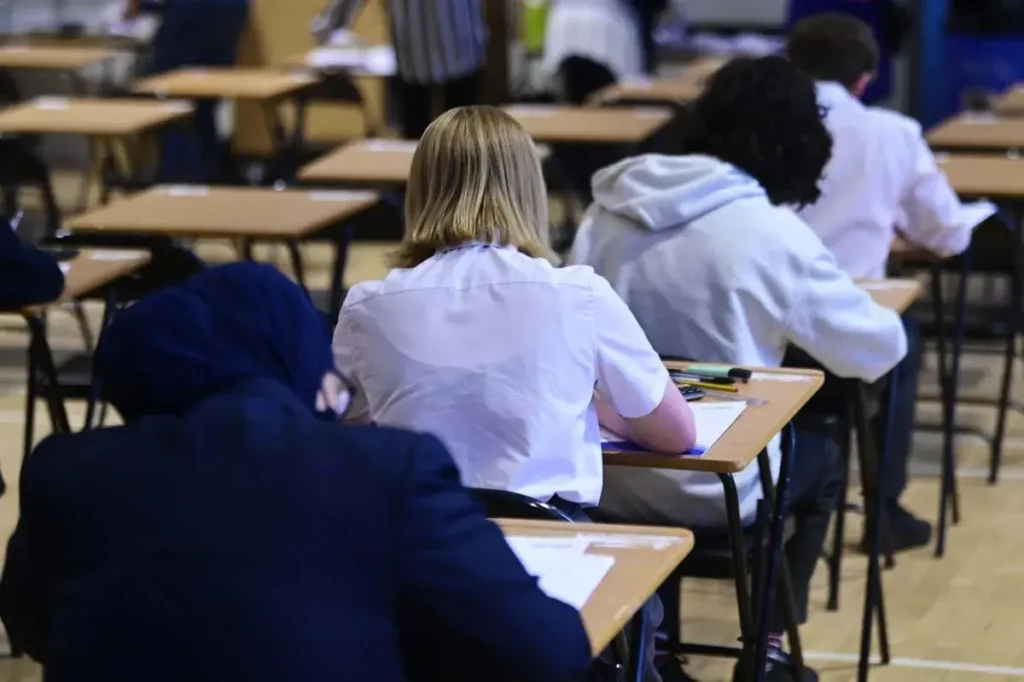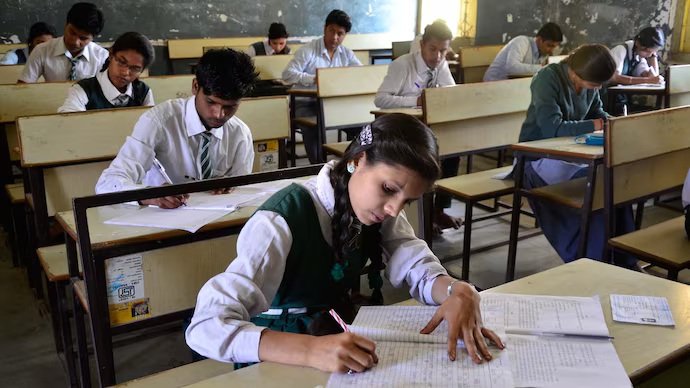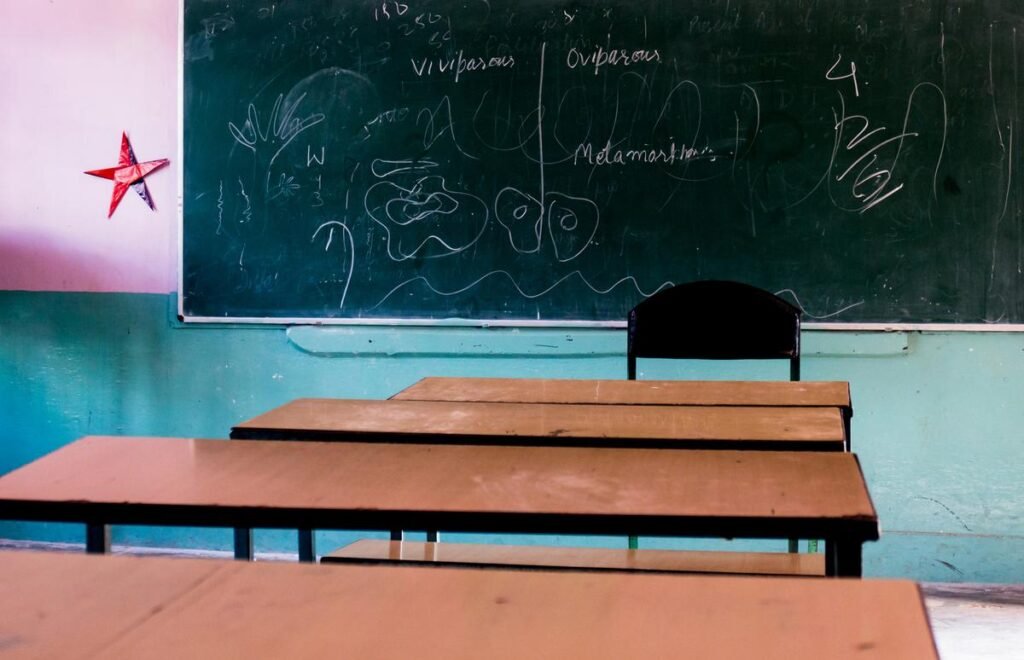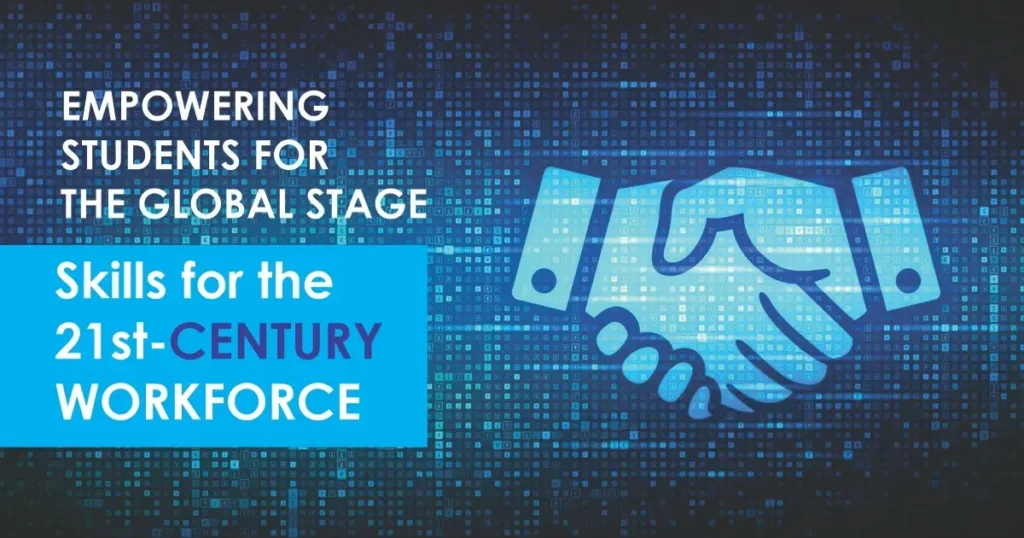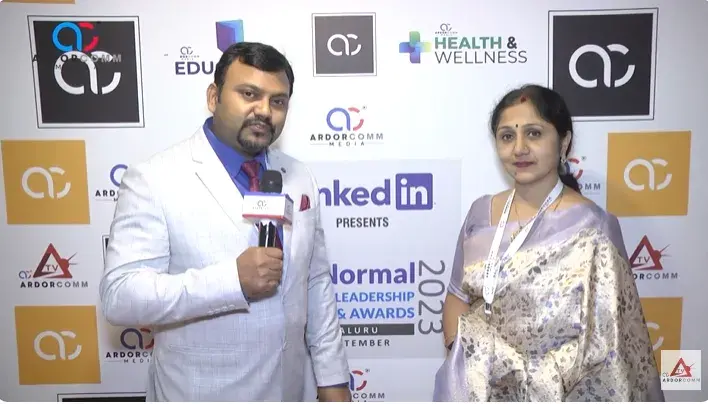“Knowledge is not just for exchange; knowledge can be for assimilation as well. So how well you assimilate this knowledge is very important,” says Vamsheepriya Amar, Principal, MVJ International School; Chairperson, Bangalore Sahodaya (BSSCA), in an interview with Chandan Anand, CEO & Group Editor, ArdorComm Media Group at the ‘New Normal – Education Leadership Summit & Awards 2023’ #ELSABengaluru #ELSAKarnataka Under your leadership, what is your organization doing, and how is Bangalore Sahodaya grooming and growing day by day? See, first of all, let me think about the panel we just heard. They were talking about teachers’ training. We have massively utilized this platform to reach out to every school in training the learners. I am saying training the learners because they have that kind of acumen to improvise as well as to implement that back into the classrooms. So that is one of the things that we have taken on. Also, they were talking about the rural areas. Yes, we have reached out to all the remote areas where learning could have been difficult, and to get that 50 hours of CPD program back into the classrooms and the schools would have been difficult. So, reaching out to them and making it possible for them in the classrooms was one of our missions for BSSCA, basically. And also, I recently met here a couple of people, and I got a better insight into how technology can be empowering the classroom and learning environment. I just recently met somebody who was talking about the NCF (National Curriculum Framework) and FLN (Foundational Literacy and Numeracy) strategies and how technology has really helped them to take it back into the classrooms and make sure that NCF curriculum goals will be positively taken into consideration. That, I think, is a major learning for me today being here. And of course, ArdorComm is doing very well. Congratulations on your second year of launching this and trying to connect with a number of people in and around. Sometimes it so happens, back in school, we are into that, well, we feel our job is to just take care of our school, but when we come out into such open forums, we do meet people and we can really interact and also learn a lot. And I become a co-learner; that’s a basic thing that I felt is really motivating and inspiring. What is the motivation for teachers in the school campus when it comes to your shoulders as a responsibility? They need to soil their hands, and if I can use, because you’re back in Karnataka, I would like to use a proverb, “The more you soil your hands, you enjoy or reap the fruits, basically.” So, the thing is they should be thinking deeply about how much they can contribute to the learning field, and the day being learners themselves, every day is a learning, and every experience they need to reflect that enhances the metacognition skills. And I’m sure learning will be exponential unless it is within, and that innate motivation, I would say intrinsic motivation, I don’t think extrinsic motivation is possible with some of us. But yes, people like you give us the extrinsic motivation and make us feel that yes, we are doing and we’re in the right place. Let us do some more. So that’s a kind of extrinsic motivation people derive from events like this or connections like this. So, both should be balanced, extrinsic as well as intrinsic. What is the role of skill education in school education? How is it moving forward in your school, and how are you taking care of skill education? Yeah, I think NCF also speaks about this, knowledge skills, as well as competencies. All of it should be together; it should be an amalgamation of cognitive, affective, as well as psychomotor domains. So, knowledge is not just for exchange; knowledge can be for assimilation as well. So how well you assimilate this knowledge is very important. And the skills can be soft skills; all your 21st-century skills from effective communication to collaboration to creativity and critical thinking. Nothing is quantitative; it’s quality that we are depending upon. So that is one thing that we need to be mindful of in school. So, encourage every child; we never know when the child can be a radio jockey with a lot of humour, and that calls for a 21st-century skill, which is effective communication, that’s right. And after which, I did mention about the competencies. Identify these rich skills in children, mould them, nurture them, and help them explore through self-awareness where they can really understand the balance between their strengths, their weaknesses, the areas where they can really improvise. I think they may not be 100%, but the fact that they’re trying to move in the right direction is more than enough. In a forum like this, where we see the corporate is here, the government is here, the academia from school and higher education is here. What is the outcome, and what do you expect from such forums? We look forward to the policies which are really hidden and they never come out sometimes. So, when people speak, they actually get the forums in which they were actively involved back onto the stage and back to the public. So, we are looking forward to hearing from them and understanding whether the policy is just for the sake of policy or there’s going to be an implementation and a carry forward of it. We are glad to share that we have recently celebrated our second anniversary. Any message would you like to give to ArdorComm Media Group? You’re doing a great job. Please keep continuing this good job. Get more and more educators together so that we will learn from one another, and learning is constant. Congratulations on that.

